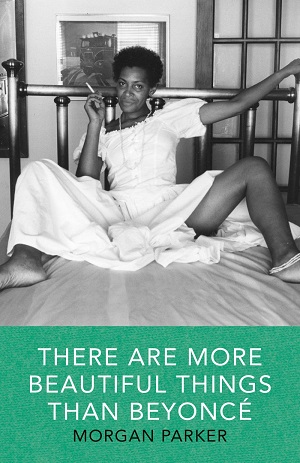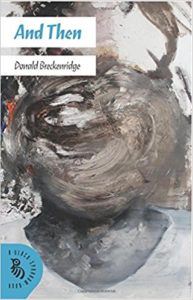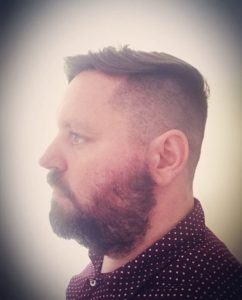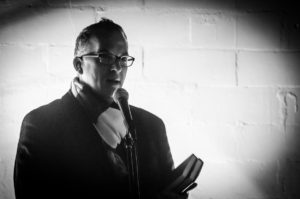 There Are More Beautiful Things Than Beyonce,
There Are More Beautiful Things Than Beyonce,by Morgan Parker
Review by Michael Lorenzo Porter
The orange Mussolini is running amok, nuclear war peers from around the corner, and rights once thought to be inalienable can be snatched as quickly as each new 24-hour rat race presents itself. Somewhere, in the midst of our bizarro world insane faux society posing as a real, functional society, Morgan Parker has found the time, the wit, and tact with which to eloquently communicate just what it is to be a black woman at this point in what is sure to be remembered as a turning point in human history. What does it mean to be a black woman?
What is America?
Do dreams still matter?
There Are More Beautiful Things Than Beyonce, the follow-up to 2015’s Award-winning Other People’s Comfort Keeps Me Up At Night, asks the reader to ponder these questions and much much more. This latest work shows Parker has a knack, and some might say a lust for juxtaposing pain and comedy, the pillars for any millennial resigned to life in a sprawling metropolitan juggernaut of a city. It’s all here: TV Dinners, Beyonce, violence, the inescapable male gaze, the female gaze, relishing the canceled dinner, Beyonce. Sex. President Obama, late night rendezvous steeped in regret, the thrill of not feeling alone if even for a moment.
There Are More Beautiful Things Than Beyonce is brutal in its earnestness. Parker exhibits both strength and vulnerability in equal measure. She knows when to pull us back from despair. Knows how to stop us from fully delving into her mind.
In ‘RoboBeyonce’ Parker imagines a not too distant future (that actually could be our current soul-crushing present) where sex is a sterilized, clinical act with a cold manufactured quality.
Charging in the darkroom
While you sleep I am touch and go
I flicker and get turned on
Exterior shell, interior disco
A lack of fulfillment, or maybe an admission of detachment serves as a numbing dose of reality when confronted with situations that demand genuine human contact. Although Parker deftly manages to be in the moment, lest it pass us by in a whir we aren’t sure was even worth noting, she is also attuned with just what that scary unknowable future may bring.
The future is scary and Parker is aware of that fact.
She is also aware that if one is to truly live in this world, the taking of a vice seems to be akin to picking a career in a specified field. Self-loathing. Cigarettes. One-night stands you regret before they begin. Cigarettes. A lot of whiskeys. Too much whiskey.
While Parker muses about nights spent alone, basking in the fresh glow of plans just canceled via text message; it is near impossible not to relate. We’ve all breathed a sigh of relief at plans we just weren’t quite looking forward to falling through. And even if we were, the time spent alone in your apartment/room will surely be more productive than the night of bashing your brain silly with poison you can’t even afford, right?
The brilliance of ‘Beyonce’ is in its phrasing and in the forming of a web of language so taut and dense, it feels tailored for the eye and ear.
She is also not afraid to talk about race when it pertains to Beyonce’s perception of herself.
‘Beyonce celebrates Black History Month’:
I have almost
forgotten my roots
are not long
blonde. I have almost forgotten
what it’s like to be at sea.
In ‘Beyonce’ Parker has crafted something worth examining not just for its literary merits, which there are many, but also for its ability to provide an in-depth and honest look inside the heart and mind of the modern black woman.
+++++
I was able to catch up with her in between readings and writing late last week.
Michael Porter: I appreciate you taking the time to talk to me.
Morgan Parker: Happy to do it!
Michael: When do you find yourself writing the most?
Morgan: I don’t have a writing routine, though usually to write every day, or at least take notes. Evening and night are usually when I’m most full, when I need to work to articulate a feeling.
Michael: Do the poems in your latest work reflect a particular mood?
Morgan: Definitely. There Are More Beautiful Things Than Beyoncé changes for me every time I re-read it, just as my view does on the time when it was written, its particular songs and proclamations. I work in each book to create an atmosphere, to invoke sounds and colors and figureheads. My new book, Magical Negro, overlaps in tone and theme a bit, but it has its own atmosphere and mood. It’s dark and difficult, angry, mournful, blunt, less vivid in color.
Michael: What is your favorite breakfast food?
Morgan: I don’t eat breakfast, which makes me feel ashamed. Coffee and cigarettes like a cliche. Sometimes I make steak and eggs after midnight.
Michael: When do you feel invisible?
Morgan: Pretty much at some point in every day— when a white woman walks into me on the street or cuts me in a line, or I am just at home alone, or sometimes even in a group, when I feel like no one hears what I’m saying.
Michael: What super power would you want if you knew you’d only have it for 24 hours?
Morgan: White girl, preferably within 24 hours that I’m traveling alone with heavy bags.
Michael: What/who are you reading now?
Morgan: Ben Purkert’s just-released debut, For the Love of Endings. Eula Biss’s Notes from No Man’s Land: American Essays. Rereading The Color Purple. Dipping in and out of Robin D.G. Kelley’s Freedom Dreams: The Black Radical Imagination.
Michael: Do you feel pigeonholed as a “black woman writer”? What I mean is, do you ever want to write from inside someone else’s perspective/mind?
Morgan: My own mind and perspective— including those of the ancestors that haunt me and those I’m able to channel— are dynamic and multifarious enough to keep me busy, to keep my work changing as I change. For myself, in the writing, I don’t feel constrained by identity. I understand that audiences might expect a particular thing from me as a “black woman writer,” but I purposefully don’t adhere to expectations, I push discomfort and walk into the unknown. I’m terrified of feeling static in my work.
Michael: Tell me something no one knows about you.
Morgan: Is this possible?
Michael: What art helps you escape? (I have read that you like Basquiat) Is it escape you seek when looking at/enjoying art?
Morgan: There is art that helps me escape, get outside of myself and my world— certain novels and films. In general, though, the art I love most is work that makes me more myself, that reflects back to me and enhances my vision of the world.
Michael: Tell me what your favorite film/album is.
Morgan: Favorites make me anxious. Right now I’m listening to a lot of Ramsey Lewis albums.
Michael: Is there a place you cannot be bothered for weeks on end? A place you can get a good deal of work done? Your own fortress of solitude?
Morgan: Usually, this is my house. I really try to make my space conducive to imagination. But email still exists.
There Are More Beautiful Things Than Beyonce is available now through Tin House Press.
Michael Lorenzo Porter is a guy who writes about things, mainly surreal crime fiction. Think Fear and Loathing with palm trees. He is a man about town and knows just where to be at the right time. His work has appeared in some places you may or may not have read but he doesn’t care. He works for the NAACP Image Awards where he advocates for literature in an increasingly visual world. But don’t get it twisted because he loves movies.

 Donald Breckenridge is the author of four novels and the editor of two fiction anthologies. He has also served as the fiction editor of the Brooklyn Rail for the last sixteen years, and is the co-founder and co-editor of InTranslation, and the managing editor of Red Dust Books. His most recent work, And Then (
Donald Breckenridge is the author of four novels and the editor of two fiction anthologies. He has also served as the fiction editor of the Brooklyn Rail for the last sixteen years, and is the co-founder and co-editor of InTranslation, and the managing editor of Red Dust Books. His most recent work, And Then ( Thomas Moore is a UK based writer whose most recent novel In Their Arms (Rebel Satori Press), follows the spiraling life of a queer art critic as he numbly navigates a life of cruising apps and locales. In Their Arms dabbles wholeheartedly in the kind of erotic and depraved narratives that feature despairing males, made notorious by writers like Dennis Cooper. In Their Arms evokes a vague horror and routinely works to dull the reader’s senses. Stylistically, the book also features a detritus of pop music and cultural allusions. In our next installment of writers talking about the music that has played a part in their creative lives, we talked to Moore about the role music plays in his writing and the importance of tone and style over narrative.
Thomas Moore is a UK based writer whose most recent novel In Their Arms (Rebel Satori Press), follows the spiraling life of a queer art critic as he numbly navigates a life of cruising apps and locales. In Their Arms dabbles wholeheartedly in the kind of erotic and depraved narratives that feature despairing males, made notorious by writers like Dennis Cooper. In Their Arms evokes a vague horror and routinely works to dull the reader’s senses. Stylistically, the book also features a detritus of pop music and cultural allusions. In our next installment of writers talking about the music that has played a part in their creative lives, we talked to Moore about the role music plays in his writing and the importance of tone and style over narrative. Angel City Review is proud to present the first installment of an interview series that will feature exclusive interviews with writers and musicians about the literature and music that moves them. First up we have Jim Ruland, author of the award winning novel
Angel City Review is proud to present the first installment of an interview series that will feature exclusive interviews with writers and musicians about the literature and music that moves them. First up we have Jim Ruland, author of the award winning novel